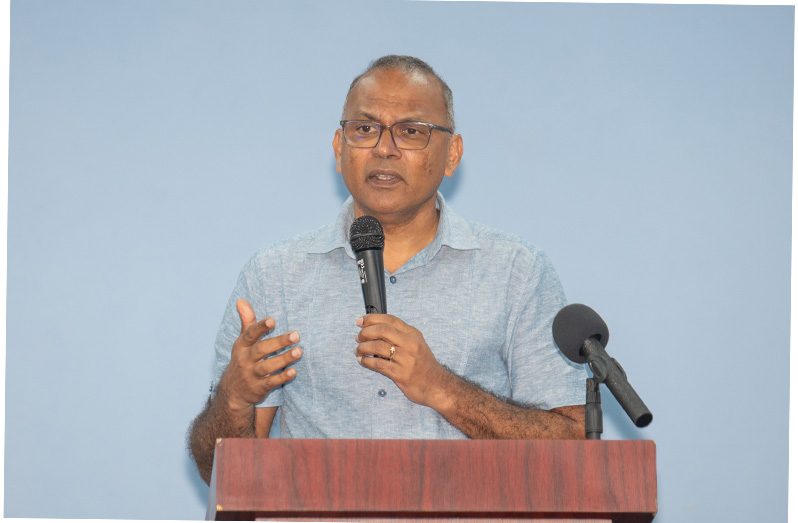THE Disability and Rehabilitation Services Department of the Ministry of Health (MoH), on Friday afternoon launched Rehab Week 2025 under the theme, “From Rehab Resilience: Empowering Recovery through Movement and Strength,” in the ministry’s Brickdam, Georgetown boardroom.
The department also used the opportunity to launch the rehab app, stroke survivor’s handbook and an amputation booklet.
The Rehab Exercise App is designed to help people recover after a minor injury, as well as those individuals who are simply looking to enhance their daily physical capabilities and prevent future issues. It also offers a curated library of safe, effective and easy-to-follow exercises from neck to ankle with clear instructions. The app uses 2D images.
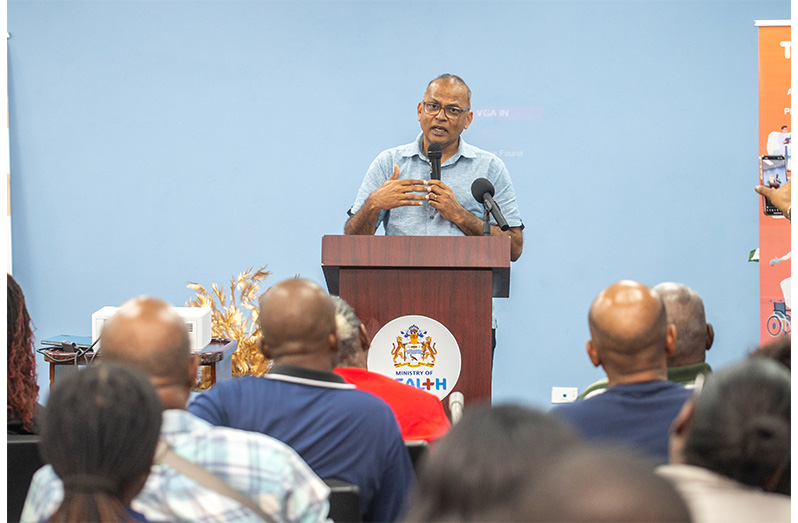
The Amputation Booklet provides amputee patients with a comprehensive guide that details how to manage life pre and post amputation, so as to help with the successful use of a prosthetic limb. It also provides guidance to doctors, caregivers and patients on expectations before and after amputation. Information on what is amputation, causes of amputation and emotional adjustments are also among the key contents of the booklet.
Further, the handbook for stroke survivors was created by the Palms Neurological Rehabilitation Department with the general population in mind, while aiming to educate on the various aspects of recovery following a stroke.
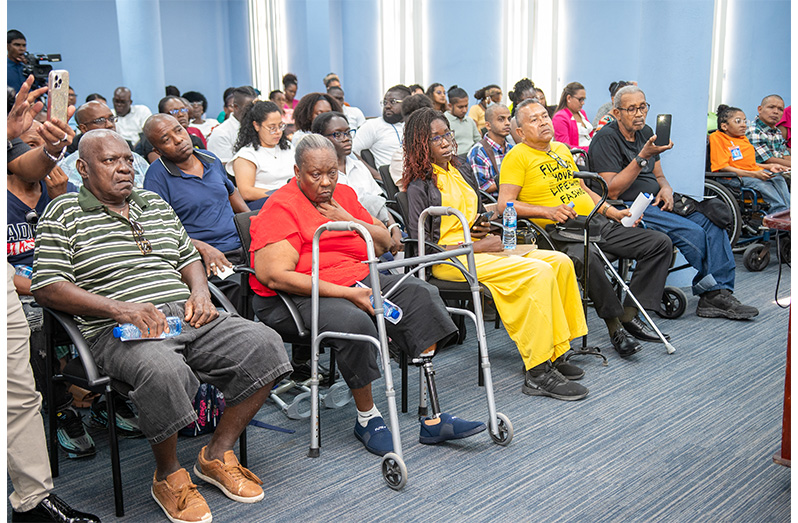
The handbook advocates the existence of a specific clinic in Guyana designed to offer a range of services, including physiotherapy, occupational therapy, speech therapy, counselling and nutrition services for stroke survivors.
Meanwhile, Minister of Health Dr Frank Anthony in his address at the Rehab Week activity said if chronic-illness patients take their treatment regularly, then the amputation of a leg for those suffering from diabetes would not be necessary.
He reiterated the fact that those patients also need to have to adopt a proper diet as part of their daily routine, due to the many complications of diabetes and they will also need to do regular exercise and have checkups done often.
Dr Anthony added that some complications of diabetes include blindness because if the retina goes bad and the patient does not go for a checkup and doesn’t manage themselves with medication, diet and exercise, they can develop those complications.
He pointed out that a lot of people in Guyana are diabetic and emphasised that with proper care and the right type of diet and medication, they could reduce or avoid complications.
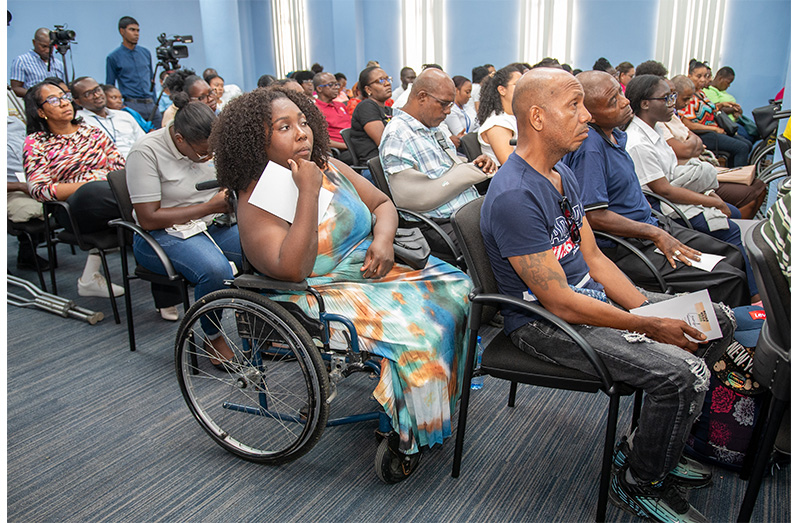
The minister stated that the MoH works on the preventative side because they want people to avoid losing a leg or limb due to uncontrollable diabetes.
He related that they also don’t want people to lose their kidneys, so they need dialysis since some things can be prevented with their strong diabetes programme. However, he admitted that we are not managing chronic disease end which is resulting in complications which require rehabilitation to make life easier for the patient.
SIGNIFICANT PROGRESS MADE
Dr Anthony said the government via the ministry has made strides, including the launching of the universal health vouchers for people to get specialised tests to detect varying illnesses.
Further, he emphasised that much is being done to improve rehab and the other available services.
He disclosed that they distributed 1,000 wheelchairs last year and for this year, they have acquired 3,000 more which will be distributed across the country free of cost.
Dr Anthony said that for those with hearing impairment, previously they had to buy a hearing aid at a cost of $65,000 and the batteries had to be replaced every two to three weeks.
He informed the gathering that three years ago, the ministry launched a modern hearing aid that is rechargeable and is free of cost. The ministry will be sourcing 1,900 this year for distribution. Some 1,000 hearing aids were distributed last year to those who needed them.
The minister stated that even schoolchildren benefitted from this initiative via the school-health programme where scanning was done. This will be extended into the newer hospitals that are opening across the country and will include a specialised booth for people to have their ears checked.
Dr Anthony revealed that the new Diamond Hospital has a custom-made sound booth for testing ears and the new hospitals under construction at Enmore, Bath, 75, De Kinderen, Region One, Kato and Lima will also provide specialised health care services.
He said they have done a lot of work with speech therapy for children with autism and for those with prothetics.
The minister reported that they are trying to make prostheses free for those who need it, since it costs between $350,000 to $450,000 for lower-limb protheses and it will be done at the Ptolemy Reid Rehab Centre.
He said they will cater for 200 people, and it will cost $90 million for that project which will give people their mobility back. According to him, once launched, the service will be maintained.
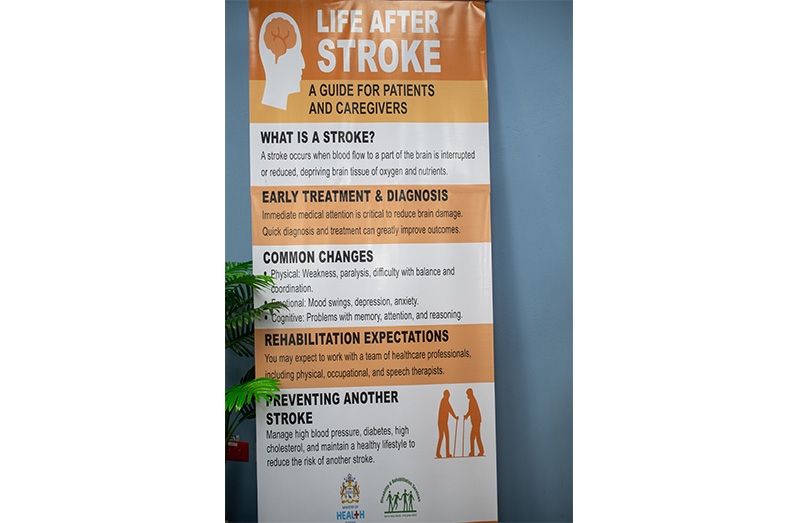
Meanwhile, Dr Ariane Mangar, Director of Rehabilitation Services, in her remarks told the gathering that the theme reminds us that rehabilitation is not just about recovery, it’s about reclaiming power, independence and dignity. It’s about moving beyond the limits of injury, disability, or illness, and forging a new path of strength, one guided by skilled care, compassionate support, and a system that believes in every individual’s potential to thrive.
She added that Rehabilitation Week has always served as a time to raise national awareness of disability, rehabilitation services and the professions that make this work possible. Across the country, there are now 33 public rehabilitation departments, offering essential services such as: physiotherapy, occupational therapy, orthotics and prosthetics, audiology, speech therapy and vocational training for young adults with disabilities.
“And this year, we add to that legacy with new tools, new knowledge, and new hope. I am thrilled to officially launch the Guyana Rehabilitation Services Mobile App—a digital platform that puts rehab information, appointment access, referral systems, and community education right at the fingertips of our patients and providers. This app is not just a tool—it’s a symbol of our drive to modernise, decentralise, and digitise rehabilitation across Guyana,” she said.
Dr Mangar also spoke about the stroke survivor’s handbook and the amputation booklet.
She explained that the National Stroke Handbook provides stroke survivors, caregivers, and health workers with clear, accessible guidance for early identification, rehabilitation, and reintegration.
The Amputee Handbook is a comprehensive guide for persons with limb loss. It addresses pre- and post-operative care, mobility training, psychosocial support and prosthetic readiness. These resources represent our commitment to standardised, patient-centred care and empower individuals and families in their journey to healing, she added.
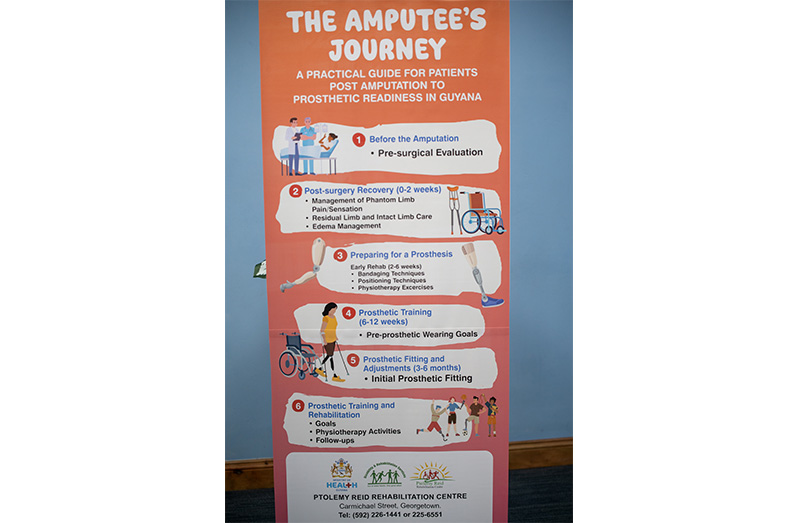
Further, she emphasised that building the future of rehabilitation in Guyana is no longer a side service—it is a pillar of our health system.
As Guyana embraces this year’s theme, she stressed that the department stands firmly in upholding its mission which speaks to the expansion of access in every region, including hinterland communities, raising the standard of care across every rehab department, integrating technology, research, and training into everyday practice, and above all, empowering our people to live full, active and meaningful lives.
“Let us continue to align with His Excellency the President’s vision of a “Good Life for All” through “Good Health for All.” Rehabilitation is central to that promise—and together, we will make it a reality,” she said.



.jpg)




